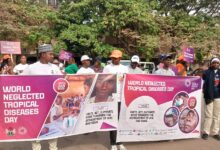
Nigeria, China, Rwanda, Chile and other countries are joining the World Health Organization (WHO) to mobilize efforts on a worldwide “Day of Action for Cervical Cancer Elimination.”
According to a statement issued by WHO on Sunday, world leaders are arriving in Rio de Janeiro, Brazil, for the G20 Summit this weekend.
It noted that countries were are marking the day with campaigns to provide human papillomavirus (HPV) vaccination and screening, launching new health policies to align with the world’s first-ever effort to eliminate a cancer, and raising awareness in communities.
Four years ago to the day, 194 countries resolved to eliminate cervical cancer and WHO launched a global strategy. Since then, significant progress has been made.
At least 144 countries have introduced the HPV vaccine, over 60 countries now include HPV testing in their cervical screening programmes and 83 countries include surgical-care services for cervical cancer in health-benefit packages.
In response, WHO Director-General, Dr. Tedros Ghebreyesus thanked all the health workers who were playing a critical role in the global effort.
He however, informed that they were faced with huge inequities which only strong leadership and sustained investment could solve: “While we are making progress, we still face huge inequities, with women in low-income countries bearing most of the burden. Only with strong leadership and sustained investment can we achieve our shared goal of equitable access for communities most in need”, he said.
The global health body further hinted that it was launching new guidance on Target Product Profiles (TPPs) for HPV screening tests: “WHO is launching new guidance on Target Product Profiles (TPPs) for HPV screening tests. This technical product outlines preferred standards for new HPV tests. The tests should be able to function even in remote areas in low- and middle-income country settings where disease burden is highest.
“The TPPs highlight the importance of tests that give women the option to collect their own samples for testing; and the value of tools that enable HPV testing in settings closer to where women receive care.
“The new publication aims to support innovation in the HPV testing market, emphasizing high-performance, low-cost, and accessible solutions, particularly transformative in resource-limited settings”, the statement explained.






